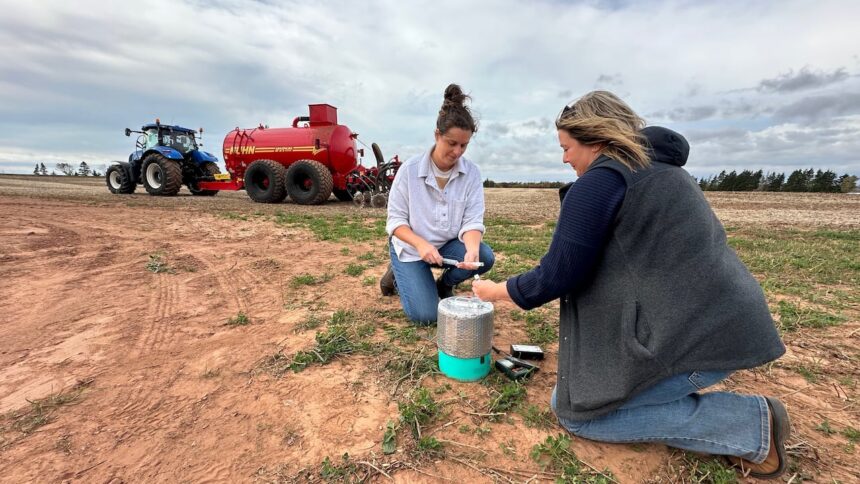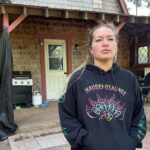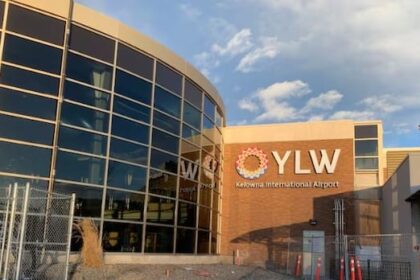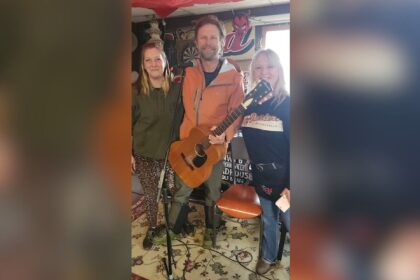A ‘less smelly’ way of applying manure is also better for the planet, P.E.I. study finds5 hours agoDuration 2:285 hours agoNewsDuration 2:28A project on P.E.I. that looked at injecting manure instead of spraying it found benefits for the environment — and happier neighbours. The first summer of testing showed a dramatic drop in greenhouse gas emissions, healthier soil and less smell. CBC’s Nancy Russell reports. Related Stories Charlottetown enlists sheep for eco-friendly lawn maintenance project New $180-million waste processing plant set to open in Charlottetown in 2028 P.E.I. will delay planting 350,000 trees until spring due to hot, dry summer conditions COVID-19 levels in P.E.I. wastewater have dropped, says province Changes to P.E.I.’s rules for trapping and snaring come into effect this seasonMore from NewsVideo8:06Gaza ceasefire now in effect, Israel military saysCBC News Network (Highlights) 1 hour agoVideo5:13Nobel Peace Prize awarded to Venezuelan opposition leader Maria Corina MachadoCBC News Network (Highlights) 2 hours agoVideo1:40Working Centre and St. John’s Kitchen prepares to serve 400 Thanksgiving meals3 hours agoVideo3:04Nunavut pitches Kivalliq Hydro-Fibre Link as nation-building project4 hours agoVideo0:33Riley Laychuk’s Manitoba forecast for Friday, Oct. 10, 20254 hours agoTrending NowVideo2:11Trump asked about Canadians who are refusing to come to the U.S.Politics News October 7Video3:04Rare white beaver spotted in marsh near Perth October 7Video2:14Meet the woman behind P.E.I.’s famous ‘mile-high’ lemon meringue piesOctober 9Video0:28Surveillance video shows moments before and after fatal shooting inside StarbucksOctober 1Video5:19Carney and Poilievre spar over PM’s ‘meeting of the minds’ with U.S. presidentPolitics News October 9
A ‘less smelly’ way of applying manure is also better for the planet, P.E.I. study finds











